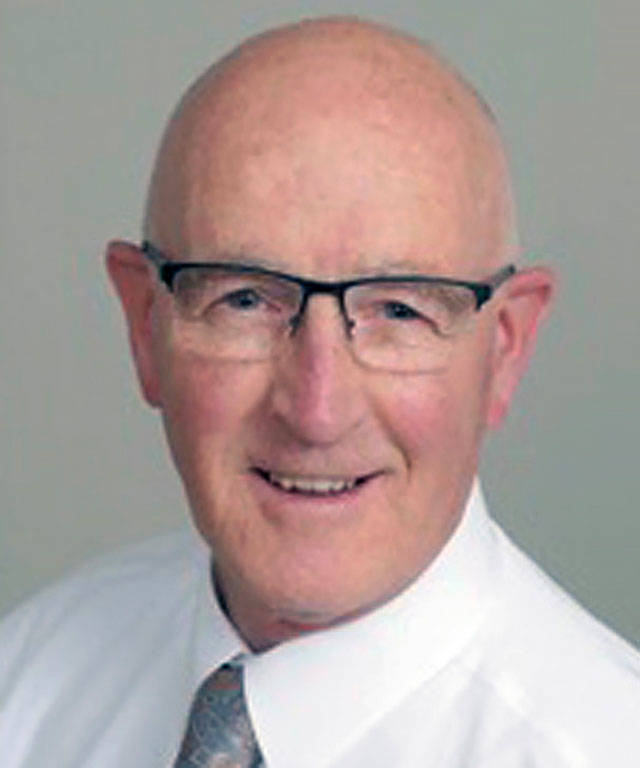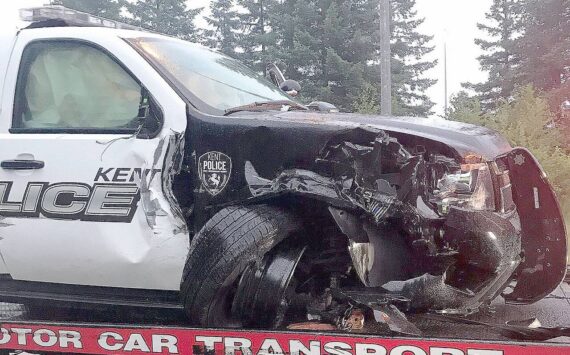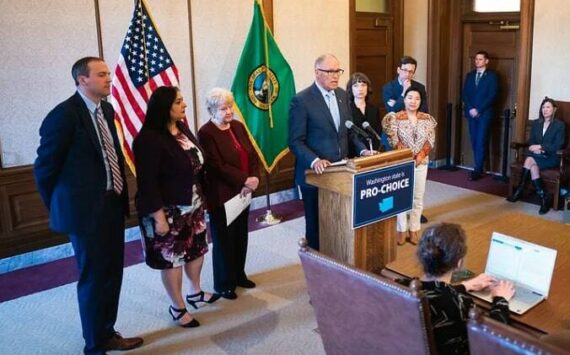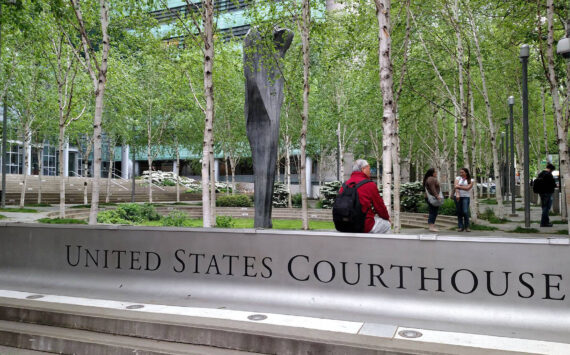A controversial sex education law and the path to reopening public schools are two flash points in the contest to become the next leader of Washington state’s public schools system.
Superintendent of Public Instruction Chris Reykdal is seeking a second term against five opponents critical of his embrace of the law that requires every school district to create a sexual health education curriculum for every grade level.
Challengers Maia Espinoza, Ron Higgins, Dennis Wick, David Spring and Stan Lippmann each support the law’s repeal — which voters could do this fall with Referendum 90 — because they say it usurps local control of districts to set education policy in their communities.
The quintet, in varying degrees of vociferousness, also questions Reykdal’s commitment to allowing districts to restart classroom instruction this fall if they want. Some think he will intercede to keep campuses shuttered amid the continuing COVID-19 pandemic.
The two top finishers in the Aug. 4 primary will advance to the general election on Nov. 3.
At stake is a four-year term at the helm of an agency charged with overseeing the state’s public school system which includes 295 school districts and roughly 1.2 million students from preschool to high school. It is a nonpartisan job paying $153,000 annually.
Reykdal, 47, of Tumwater, was born and raised in Snohomish County. He is a former high school history teacher and school board member who served three terms in the state House of Representatives before winning the statewide post in 2016.
He almost didn’t make it. He finished second in a nine-person primary to a fellow Democrat, Erin Jones. In the general election he won by a single percentage point.
In his tenure there has been an overdue flood of state tax dollars into the public school system as a result of the McCleary funding lawsuit. But the pandemic forced an unprecedented closing of campuses and switch to distance learning in spring. Face-to-face instruction is unlikely in many school districts this fall.
“We had built so much momentum for student success,” Reykdal said. “Now, with COVID, the momentum is to get through it and to get back on track.”
Avoiding any budget cuts will be a focal point of a second term, he said. Looking to the future, he said he intends to propose a new model of funding schools to the Legislature.
His office requested the sex education law, which proved to be one of the most disputed pieces of legislation in the session. It mandates a curriculum be available for instruction to students in grades six through 12 in the 2021-22 school year and then all grades, including kindergarten, beginning in the 2022-23 school year.
“It is a responsible bill that empowers parents. I respect that they’ve got issues that drive them,” he said of opponents. “For us it was about safety.”
Reykdal had amassed $81,334 in contributions as of July 28, according to state campaign finance records. Contributions from tribes, corporations and labor unions, including the Washington Education Association representing teachers, account for the vast majority of money.
Of the challengers, only Espinoza and Higgins are raising money. Espinoza reported $62,761 in contributions as of July 28, nearly all of it from individual donors. Higgins tallied $8,401, of which about 40% is his money.
Espinoza, 30, of Lakewood, ran unsuccessfully for a state legislative seat in 2018. A moderate Republican, she is the founder and director of the Center for Latino Leadership and a former legislative liaison for the Washington State Commission on Hispanic Affairs.
She said she wants schools to reopen but figures face-to-face instruction five days a week is unlikely with COVID-related restrictions for safety. Districts must receive resources to provide each student with what they need to learn regardless of where their instruction occurs.
Espinoza is a believer in school choice and backs vouchers or small scholarships for families whether their child is in public, private or parochial school, or is home-schooled.
“Our schools are like assembly lines attempting to produce copies of the same student, while we now have tools that allow us to tailor education and take advantage of teachers’ skills and students’ needs to help our kids reach their dreams,” she has said.
On the sex ed law, she said if is not repealed, “we need to look at creating additional options for districts to comply with state law comfortably.”
Higgins, 72, of Richland, a self-described conservative, is running for the third straight election. A retired engineer, he is a substitute math teacher and licensed school bus driver. He finished third in the 2016 primary.
“I get to see first hand how our schools are indoctrinating our kids and I am sick and tired of it,” he said. “I’m for connecting kids with their heritage of liberty and basic education.”
He called the sex education law “child abuse, pure and simple. We will not implement if it’s up to me.”
Higgins said he’d defer to school districts on reopening. But he questioned science cited by Reykdal, Gov. Jay Inslee and others on some rules that will be in place. For example, he said masks — which students and teachers will have to wear — are “germ traps” that won’t ease the spread of coronavirus.
Wick, 63, of Snohomish, served on the Snohomish School District Board of Directors from 1999-2007. Citing that experience, he said he wants to take a “fresh look” at how instruction is delivered and will seek to steer more aid and resources to smaller school districts with infrastructure needs, such as broadband.
“The focal point of my campaign is to improve the learning opportunities that our students receive,” Wick said. “Isn’t that the point of this office?”
A retired Boeing employee, he said he teaches an online leadership course in the School of Engineering and Applied Sciences at Gonzaga University.
“I can feel the pain that is now happening in our schools as they struggle with offering education online,” he said.
Local school boards should decide what content to offer in the area of sex education, he said.
“This was not a problem that needed to be solved at the state level and the Legislature should stop using our students as political footballs,” he said. “Parents should be given an opportunity to opt-in to any sex ed program.”
Spring, 68, of Ferndale, ran unsuccessfully for the seat in 2016. He’s a leader of Opt Out Washington, which encourages parents to get their children exempted from taking the “draconian” Smarter Balance assessment tests.
Boosting funding of public schools is of critical importance, he said. But the “much larger” issue at the moment is getting schools open “for the health of the students.”
“There is absolutely no scientific research” supporting their closure, he said. “I want to restore common sense and science to the decision-making process.”
Spring called the sex education law “unconstitutional” and the question of what is taught and when is a question for school districts to answer.
Lippmann, 60, of Renton, is a physicist and has taught science at schools in Massachusetts and overseas. He called for overhauling the delivery of public education, saying the “disordered state we’re living in” is a product of a failed system.
“I want to repeal the whole system,” he said. “It’s evil. It’s an absolute failure.”
Curriculum reform and a renewed emphasis on teaching of reading, writing and arithmetic would be a priority, he said. Public school teacher unions would be banned too.
“I want the teachers to be better. I want students to be better,” he said. “But the politics have completely overwhelmed the system.”
Ballots returned by mail do not require any stamp but they must be postmarked no later than Aug. 4 to count. They also can be placed in one of the county’s 29 designated drop boxes. These are open around the clock until 8 p.m. on Election Day.














